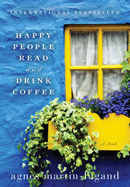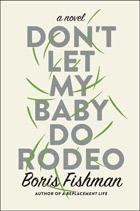 “Regrets Only,” by M.J. Pullen (Thomas Dunne Books, p 322, $24.99)
“Regrets Only,” by M.J. Pullen (Thomas Dunne Books, p 322, $24.99)
Following her success with The Marriage Pact (2015) M.J. Pullen delivers the second installment of her engaging new series about a group of thirty-something in Atlanta. This time, the event takes place several years later. This coming of age story centers on Suzanne Hamilton, a young professional woman who has it all: the great career as an event planner, a rich social life, a trendy condo in the best neighborhood, and men forming a line outside her front door stretching to the street corner.
The story is no caricature however. Even though it starts on a high note, things quickly turn sour. After a freak accident, she loses pretty much all of it. This is when the novel kicks into high gear and finds its voice. Because the early thirty is really a time of readjustment. When coveted dreams end up in tattered, the nature of the dreams must be realigned to fresh perspectives. Often things we moan about or leave behind in grief are just step towards way better things.




 Author du Jour: Alan Jacobson: “The Lost Codex.”
Author du Jour: Alan Jacobson: “The Lost Codex.”